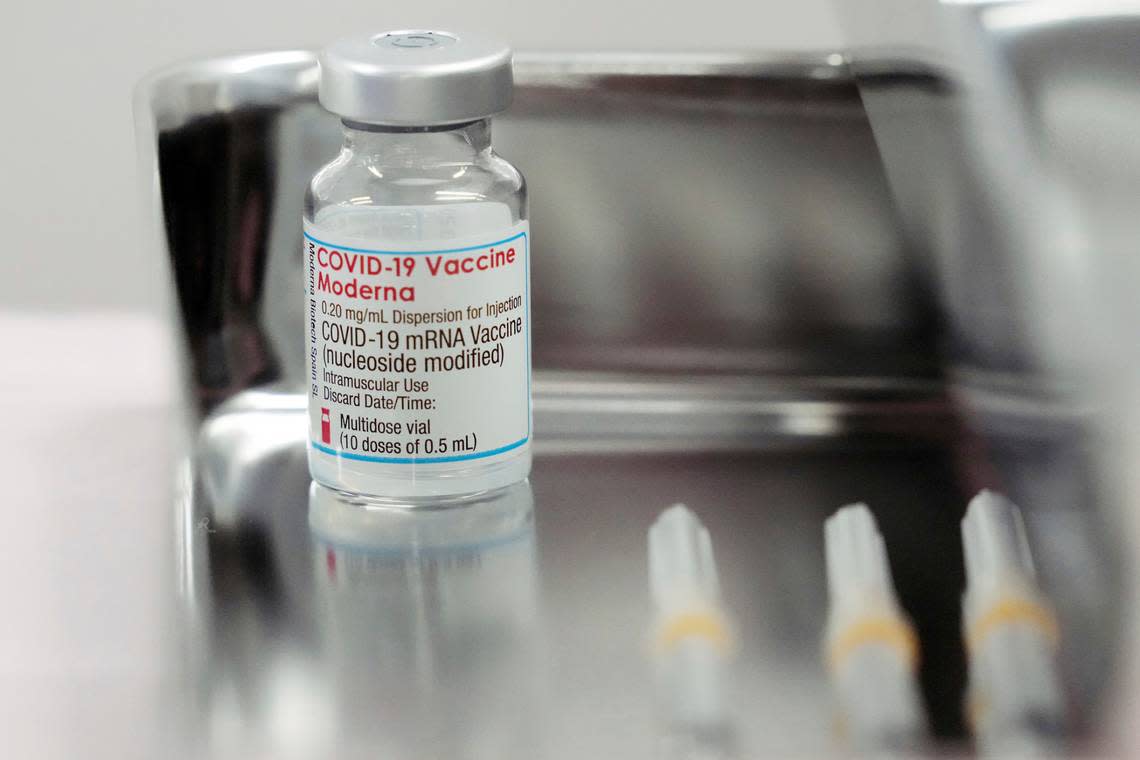Moderna COVID vaccine appears effective against contagious Delta variant, company says

New results from a laboratory study showed the Moderna COVID-19 vaccine appears effective against the more contagious Delta coronavirus variant first discovered in India, as well as other variants tested, with just a “modest reduction” in antibody levels compared to the original strain.
The Tuesday announcement offers the first evidence that the Moderna shot can offer protection against emerging variants that appear to have increased transmissibility and risk of hospitalization in countries around the globe.
The new analysis of blood samples from eight people collected one week after their second dose in the Phase 1 clinical trial found antibody levels were about two-fold lower when put against the Delta variant compared to the original coronavirus strain.
While the currently available COVID-19 vaccines in the U.S. are effective enough to protect against severe disease and death caused by the Delta variant, experts say the longer the coronavirus hops from one person to the next, the more chances it has to mutate into a version that could one day evade the shots’ defenses.
“As we seek to defeat the pandemic, it is imperative that we are proactive as the virus evolves. We remain committed to studying emerging variants, generating data and sharing it as it becomes available. These new data are encouraging and reinforce our belief that the Moderna COVID-19 Vaccine should remain protective against newly detected variants,” Stéphane Bancel, Moderna’s chief executive officer, said in a statement. “These findings highlight the importance of continuing to vaccinate populations with an effective primary series vaccine.”
The Moderna vaccine also appeared effective against the Gamma coronavirus variant first identified in Brazil, Beta variant first found in South Africa, Eta variant first discovered in the U.K., and the Kappa variant first found in India, the company said. The vaccine also appeared effective against two variants first identified in Uganda and Angola.
A study from Public Health England found that three weeks after one dose, the Pfizer-BioNTech vaccine was 33% effective against symptomatic COVID-19 caused by the Delta variant. Two weeks following the second dose, which is recommended for full protection, it was 88% effective.
There isn’t any published data on how the one-dose Johnson & Johnson COVID-19 vaccine fares against the Delta variant.
The most-recent evidence shows the variant is about 60% more contagious than the Alpha variant — one of the first variants of concern in the U.S. that initially emerged from the U.K. It’s been causing major outbreaks in other parts of the world with low vaccination rates, sending some countries, such as New Zealand, Bangladesh and Australia, back into lockdown.
The concerning trends led the World Health Organization on Friday to recommend fully vaccinated people still wear face masks whenever possible.
The advice arrived more than a month after the U.S. Centers for Disease Control and Prevention gave the green light for fully vaccinated Americans to ditch their masks in most scenarios. The CDC has yet to publicly respond to the WHO’s advice, but many health experts outside either agency seem to agree with erring on the side of caution.
Masks would add an extra layer of protection for the vaccinated, and even more so for the unvaccinated who are at higher risk of infection.
The Los Angeles County Department of Public Health on Monday night also recommended residents wear masks while in public indoor spaces, regardless of vaccination status, the Los Angeles Times reported. It appears to be the first local precaution in the U.S. spurred by concerns over the Delta variant.
As of Saturday, the Delta variant makes up more than 30% of the coronavirus cases in the U.S., according to Dr. Eric Topol, director and founder of the Scripps Research Translational Institute in California. Its presence doubles roughly every 11 days.
Nevada and Missouri are the variant’s current “epicenters” in the U.S., Topol wrote on Twitter, causing a rise in cases and hospitalizations there.
“It’s still early to assess the Delta hit. ... The next few weeks will be telling. Our genomic surveillance is still weak,” Topol wrote. “If vaccinations could be substantially increased ... we’d be in great shape to reduce its impact.”
The variant has been identified in at least 85 countries.

